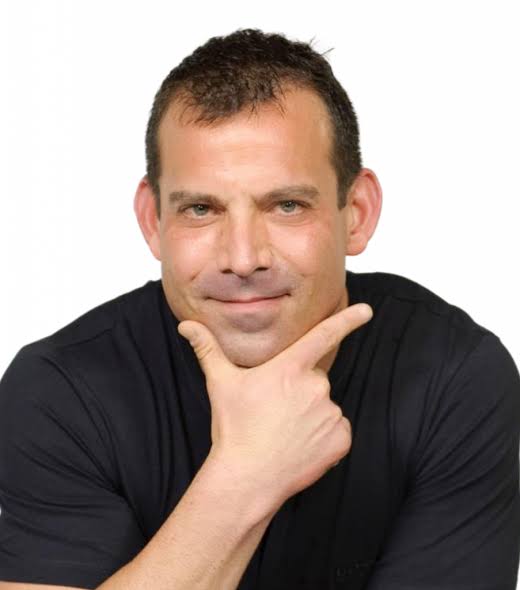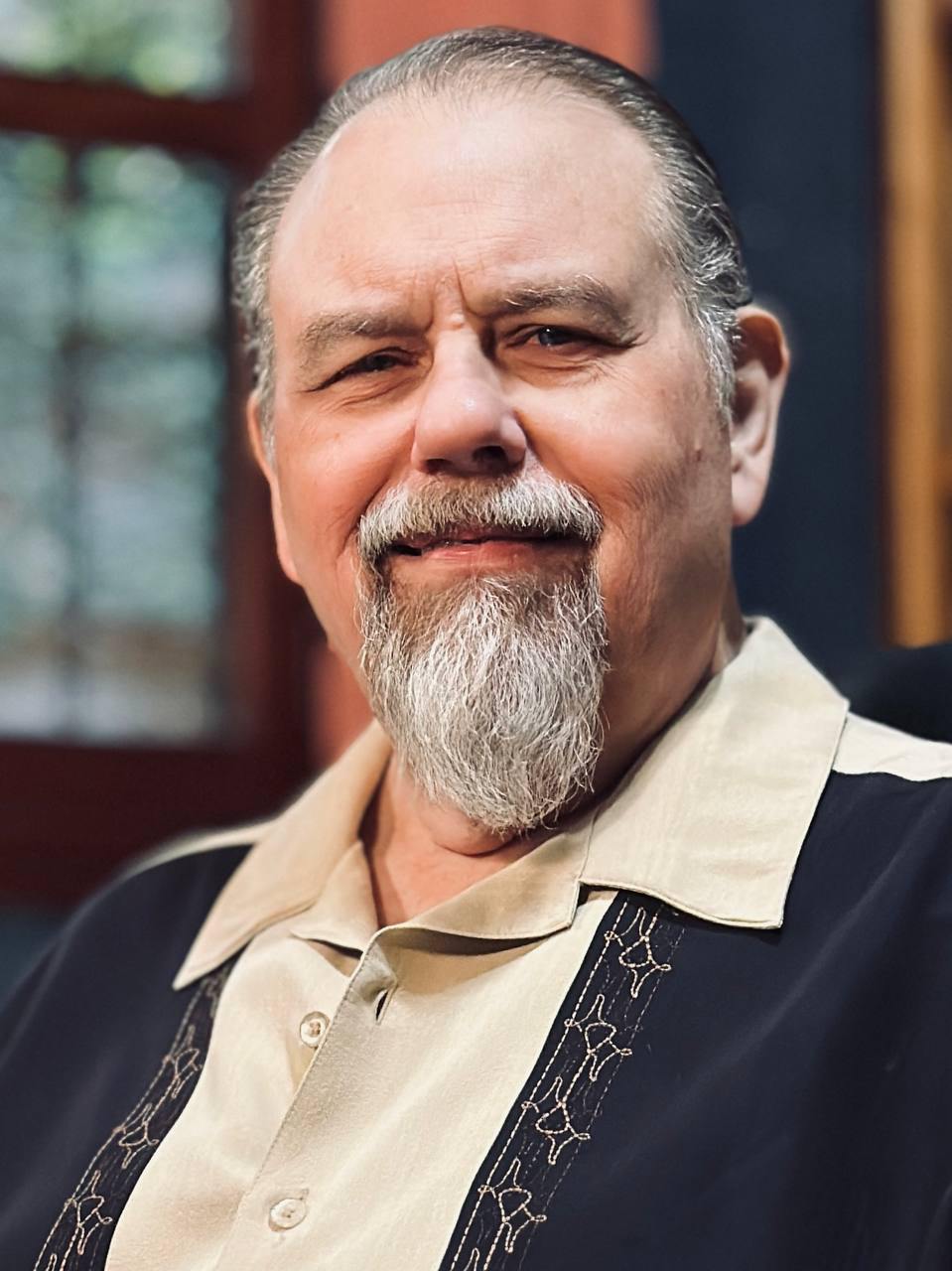Most confidence advice focuses on the wrong habits entirely.
You've probably seen the lists. Practice gratitude. Meditate daily. Exercise regularly. Write in a journal. Stand in power poses.
These might make you feel better temporarily, but they don't address why you lack confidence in the first place.
Here's what actually builds lasting confidence: daily habits that rewire the subconscious stories running your life. Not surface-level behaviors, but systematic practices that address the root programming determining how confident you feel.
After working with thousands of professionals over four decades, I've identified the daily habits that create real, lasting confidence transformation. They're not what most people expect, and they work at a completely different level than typical confidence advice.
The difference? These habits don't just change how you act. They change who you are.
The Daily Confidence Habit Mistake
Walk into any bookstore and you'll find dozens of books promising confidence through daily habits. Most follow the same formula: positive thinking, goal setting, self-care routines, and motivational activities.
The problem? They're treating confidence like a mood you can manage rather than an identity you can transform.
Real confidence isn't about feeling good about yourself daily. It's about having an unshakeable sense of your own worth and capability that persists regardless of circumstances.
Let me tell you about Jennifer, a marketing director who tried every confidence habit she could find. Morning affirmations. Evening gratitude journals. Daily meditation. Regular exercise. Healthy eating. Consistent sleep schedule.
She felt slightly better day-to-day, but in important meetings, presentations, or negotiations, her old insecurity patterns would return. All that habit-building hadn't touched the deeper programming that determined her confidence in high-stakes situations.
When we worked together, we discovered that her confidence issues weren't about daily self-care. They were about stories from her teenage years when she'd learned that being smart made people uncomfortable. Her subconscious was still protecting her from that social rejection, regardless of how many affirmations she repeated.
Once we addressed the real issue through different types of daily practices, her confidence became unshakeable. Not because she felt better about herself, but because she'd literally rewired the programming that determined her sense of self-worth.
This connects directly to what I explained in the confidence paradox: confidence isn't something you build from scratch through daily habits. It's something you uncover by systematically addressing the limiting stories that block your natural self-assurance.
The Two Types of Confidence Habits
Most people don't realize there are two completely different categories of confidence habits:
Surface Habits work on your conscious mind and temporary emotional state. They can make you feel better in the moment but don't create lasting transformation. Examples include positive affirmations, gratitude practices, motivational reading, and mood-boosting activities.
Identity Habits work on your subconscious programming and core sense of self. They create permanent shifts in how you see yourself and how you naturally respond to challenges. These are the habits that create real confidence transformation.
Both have their place, but if you want to learn how to be more confident in ways that last, you need to focus primarily on identity habits while using surface habits for daily support.
The confidence habits I'm about to share work at the identity level. They're designed to systematically rewire the subconscious patterns that determine your baseline confidence level.
The 9 Core Identity Confidence Habits
Instead of thirty random habits, I'm going to give you the nine practices that create the deepest confidence transformation. These aren't typical daily habits; they're systematic identity reconstruction tools.
Habit 1: Daily Story Archaeology
Every morning, spend five minutes identifying which stories ran your behavior the previous day. Not journaling about your feelings, but detective work on your subconscious programming.
When did you hesitate? What story was protecting you? When did you play small? What narrative was driving that choice? When did you feel most confident? What story supported that state?
This isn't therapy; it's data collection. You're mapping the invisible programming that determines your confidence level in different situations.
After two weeks of this practice, patterns become obvious. You'll start recognizing the specific stories that undermine your confidence and the situations that trigger them.
Sarah, a consultant, discovered through this practice that she had completely different confidence levels with male versus female clients. The story archaeology revealed programming from her father's criticism that made her unconsciously seek approval from men while feeling naturally confident with women.
Once she could see the pattern clearly, she could address it directly rather than trying to boost her overall confidence through generic practices.
Habit 2: Future Self Check-ins
Twice daily, spend three minutes connecting with your most confident future self. Not visualization or goal-setting, but actual communication with the version of you who has already worked through your current limitations.
Morning check-in: "How would my confident future self handle today's challenges?" Evening check-in: "What would my confident future self want me to learn from today's experiences?"
This practice builds what psychologists call "future self continuity," which research shows is one of the strongest predictors of positive behavior change and confidence development.
Michael, a project manager, used this practice to transform his leadership presence. Instead of trying to become more confident through willpower, he started each day by connecting with his future self who was already a confident leader. Within months, that future identity started becoming his present reality.
Habit 3: Micro-Identity Experiments
Daily, choose one small way to behave as if you already have the confidence you want. Not fake it till you make it, but genuine experiments in expressing your authentic confident self.
Maybe your confident self speaks up in one meeting. Maybe they walk into a room with different energy. Maybe they respond to criticism without defensiveness. Small experiments, daily practice.
The key is choosing behaviors that feel like authentic expressions of who you're becoming, not performances of who you think you should be.
Lisa, a software engineer, started with micro-experiments in how she responded to questions in code reviews. Instead of immediately apologizing for her decisions, she practiced explaining her reasoning confidently. These tiny daily shifts accumulated into a completely different professional presence.
Habit 4: Evidence Accumulation
Each evening, write down three pieces of evidence that you're becoming more confident. Not generic gratitude, but specific proof that your identity is shifting.
"I spoke up in the team meeting without rehearsing first." "I disagreed with my boss and felt calm while doing it." "I introduced myself to the new director without feeling nervous."
Your subconscious mind learns through evidence and repetition. When you consistently notice proof of your increasing confidence, your identity starts aligning with that evidence.
This isn't positive thinking; it's accurate thinking about the changes actually happening as you implement new habits.
Habit 5: Story Rewrite Sessions
Weekly, spend twenty minutes actively rewriting one limiting story that showed up in your daily archaeology. This isn't journaling about your feelings; it's systematic identity reprogramming.
Take a story like "I'm not smart enough to contribute in leadership meetings" and rewrite it based on actual evidence: "My different perspective brings value to leadership discussions, and my thoughtful approach helps the team make better decisions."
Then spend time connecting with how this new story feels in your body, how it would change your behavior, how your confident future self operates from this rewritten narrative.
Regular story rewriting literally changes your neural pathways, creating new default responses to situations that used to trigger insecurity.
This builds on the systematic approach I outline in my Complete Guide to Unshakeable Confidence, but applied specifically to confidence development through daily practice.
Habit 6: Competence Cataloging
Monthly, create a detailed inventory of your actual skills, achievements, and capabilities. Not to boost your ego, but to ensure your self-perception matches reality.
Most people with confidence issues have what I call "competence blindness." They're so focused on what they don't know or haven't achieved that they become unconscious of their actual capabilities.
Your confident future self has accurate self-perception. They know what they're good at, what they're learning, and what value they bring to any situation. This clarity becomes a foundation for unshakeable confidence.
David, a financial analyst, discovered through competence cataloging that he'd been unconsciously minimizing his expertise for years. Once he got clear on his actual capabilities, his communication in client meetings became naturally more authoritative.
Habit 7: Boundary Practice
Daily, practice one small boundary that reflects your worth and priorities. This might be saying no to a request that doesn't align with your goals, asking for what you need without apologizing, or simply taking up appropriate space in conversations.
Confidence and boundaries are inseparable. People with strong confidence naturally maintain healthy boundaries because they have an accurate sense of their own worth and priorities.
Regular boundary practice teaches your nervous system that you're worthy of respect and consideration, which directly impacts your baseline confidence level.
Habit 8: Discomfort Reframing
When you encounter situations that challenge your confidence, practice reframing discomfort as growth rather than threat. This isn't positive thinking; it's accurate thinking about what discomfort actually means.
Instead of "This feels scary, so I should avoid it," practice "This feels challenging, which means it's exactly what I need for growth."
Your nervous system learns confidence through positive experiences with challenge. When you consistently reframe difficulty as opportunity, you build what researchers call "stress inoculation," which directly increases confidence in future challenging situations.
Habit 9: Integration Reflection
Weekly, spend fifteen minutes reflecting on how your increasing confidence is showing up across different areas of your life. How is it affecting your work relationships? Your leadership presence? Your ability to advocate for yourself?
This practice helps you recognize that confidence isn't domain-specific. As you become more confident in one area, that confidence naturally transfers to other contexts when you're conscious of the process.
Regular integration reflection accelerates the generalization of confidence across all areas of your life rather than keeping it compartmentalized.
The Implementation Framework
These nine habits create the most confidence transformation when implemented systematically rather than randomly. Here's how to build them into a daily confidence routine:
Week 1-2: Foundation Building
Start with just three habits:
- Daily Story Archaeology (morning)
- Future Self Check-ins (morning and evening)
- Evidence Accumulation (evening)
These create awareness of your current patterns while beginning to connect you with your confident future self.
Week 3-4: Identity Experimentation
Add:
- Micro-Identity Experiments (daily)
- Boundary Practice (daily)
Now you're not just observing your patterns; you're actively experimenting with new ways of being.
Week 5-6: Deep Programming Work
Add:
- Story Rewrite Sessions (weekly)
- Discomfort Reframing (as needed)
This is where the real transformation happens as you systematically update your core programming.
Week 7-8: Mastery Integration
Add:
- Competence Cataloging (monthly)
- Integration Reflection (weekly)
You're now operating a complete confidence development system that works at every level from daily behavior to core identity.
Advanced Daily Confidence Strategies
Once you've established the core habits, these advanced practices will accelerate your confidence development:
The Confident Decision Protocol
Before important decisions, ask yourself: "What would I choose if I were already completely confident?" Then make that choice, regardless of how you currently feel.
This practice teaches you to act from your target identity rather than your current limitations, which rapidly accelerates identity transformation.
The Authority Expression Technique
Daily, find one opportunity to express your expertise or perspective without seeking permission or validation. Share an insight in a meeting. Offer a suggestion based on your experience. Take a position on an issue that matters.
Regular authority expression builds neural pathways that support confident self-expression in all contexts.
The Presence Optimization Method
Throughout the day, periodically check in with your physical and energetic presence. Are you taking up appropriate space? Is your posture reflecting your worth? Is your energy expressing confidence or insecurity?
This connects to the body language confidence principles I discussed earlier, but at a daily habit level rather than situational application.
Small adjustments throughout the day compound into significant presence shifts over time.
Daily Confidence Habits for Different Contexts
Your confidence building routine should adapt to your specific professional and personal contexts:
For Leadership Development
- Morning intention setting for how you want to show up as a leader
- Regular practice of making decisions without seeking consensus
- Daily opportunities to support others' growth and success
- Evening reflection on leadership moments and lessons learned
This connects directly to workplace confidence strategies and quiet leadership approaches for those in management roles.
For Sales and Client Interactions
- Pre-meeting connection with your value and expertise
- Regular practice of asking for what you need without apology
- Daily focus on serving others rather than seeking approval
- Systematic collection of evidence of your professional impact
These habits support the consultative selling mindset that emerges from authentic confidence rather than performance.
For Social and Networking Situations
- Daily practice of authentic self-expression in low-stakes interactions
- Regular boundary maintenance in social situations
- Systematic development of genuine curiosity about others
- Weekly reflection on relationship quality versus quantity
This builds on the social confidence principles I covered earlier, but through daily habit formation rather than situational strategies.
For Personal Relationships
- Daily practice of expressing needs and preferences clearly
- Regular maintenance of personal boundaries and standards
- Systematic appreciation of your own qualities and growth
- Weekly reflection on relationship dynamics and patterns
Common Mistakes in Daily Confidence Building
Even with the right habits, people often sabotage their progress through these common errors:
Mistake 1: Focusing on feelings instead of identity. Confidence isn't about feeling good about yourself daily; it's about having an unshakeable sense of worth that persists through difficult emotions.
Mistake 2: Expecting linear progress. Confidence development happens in spirals, not straight lines. You'll revisit similar challenges at deeper levels as you grow.
Mistake 3: Comparing your inside to others' outside. Your confidence journey is unique to your history, personality, and goals. Comparison undermines the internal focus necessary for real transformation.
Mistake 4: Neglecting the story level. Surface habits can't overcome deep programming. You need practices that address the subconscious narratives driving your behavior.
Mistake 5: Inconsistency with implementation. These habits work through repetition and accumulation. Sporadic practice creates sporadic results.
This connects to the broader pattern I teach about in the confidence exercise trap: surface-level practices fail because they don't address the underlying programming that determines your confidence level.
The Confidence Compound Effect
When you implement these daily confidence habits consistently, you create what I call the "confidence compound effect." Small daily practices accumulate into significant identity shifts that transform how you show up in every area of life.
Month 1: You become aware of the patterns and stories driving your confidence level. Month 2: You start experimenting with new ways of being and thinking. Month 3: Your identity begins shifting as new neural pathways strengthen. Month 6: Others notice changes in your presence and communication. Month 12: Your new confident identity becomes your natural way of being.
The timeline varies by individual, but the process is predictable when you work at the identity level through systematic daily practices.
Your Daily Confidence Action Plan
This week, choose three habits from the core nine and implement them consistently:
- Morning Story Archaeology (5 minutes): What stories ran yesterday's behavior?
- Future Self Check-in (3 minutes morning, 3 minutes evening): How would your confident future self handle today?
- Evening Evidence Collection (5 minutes): What proof did you see today of increasing confidence?
Start with just these three. Master them before adding others. Remember, the goal isn't to do everything at once; it's to create sustainable practices that compound over time.
Next week, add Micro-Identity Experiments. Choose one small way daily to behave as your confident future self would behave.
Within the month, implement the complete framework. But build slowly and consistently rather than trying to change everything at once.
The key to learning how to be more confident isn't finding the right motivation or inspiration. It's creating daily practices that systematically rewire the programming determining your baseline confidence level.
These habits don't just change how you feel about yourself. They change who you are. And when your identity shifts, everything else follows naturally.
Learning how to be more confident isn't about daily motivation or surface-level habits. It's about systematic practices that rewire your identity at the subconscious level. Ready to develop those deeper practices? Real confidence transformation happens through strategic daily habits, not random positive thinking.

"Kenrick E. Cleveland embodies the most powerful, effective, and masterful techniques of persuasion and influence that have ever been taught."

"Kenrick tops my shortlist of people I'll reach out to when I need advice on persuading others to take a desired action. His arsenal of skills and strategies has increased my bank account by millions of dollars. If you have the chance to work with Kenrick, jump on it."

"Anyone whose living depends in any way on persuading others – and that includes almost all of us – should learn and master what Kenrick has to teach about the art and science of persuasion."


